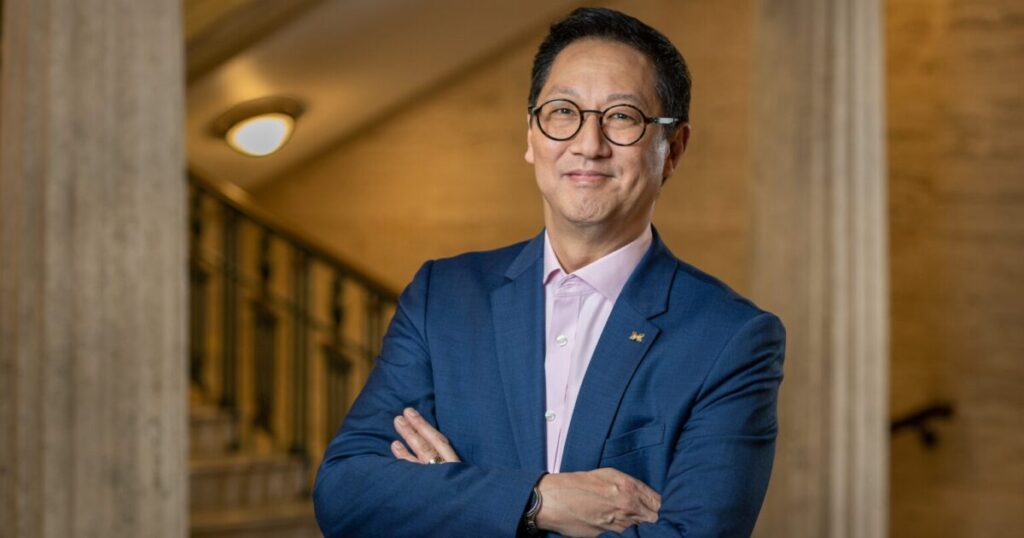Controversy Surrounds Santa Ono’s Rejection for University of Florida Presidency
In a significant development in the realm of higher education, Santa Ono, a seasoned academic leader, was not approved for the presidency of the University of Florida. The rejection came from the Florida Board of Governors, which oversees the state’s university system, due to concerns over Ono’s past endorsement of diversity, equity, and inclusion (DEI) programs.
The board’s decision, with a 10-6 vote against Ono, is unprecedented, especially since the University of Florida Board of Trustees had earlier voted unanimously in favor of his appointment. The approval by the trustees highlighted their confidence in Ono to lead as the 14th president of the institution.
Ono’s proposed contract demanded alignment with the state’s ideological stance, including limiting DEI initiatives and working closely with Gov. Ron DeSantis’ Office of Government Efficiency. The office mirrors similar efforts by former President Donald Trump.
Criticism from notable conservatives, including Republican U.S. Sen. Rick Scott, was centered on Ono’s prior academic leadership at the University of Michigan. The objection was based on his engagement with DEI and other progressive causes. Sen. Scott remarked on the X social platform about Ono’s tendency to “appease and prioritize far-left activists over ensuring students are protected and receive a quality education.”
Among those voicing concerns were Donald Trump Jr. and Florida GOP U.S. Representatives Byron Donalds, Greg Steube, and Jimmy Patronis. Donalds, a Republican gubernatorial candidate, also questioned Ono’s conservative alignment.
Ono previously expressed support for DEI initiatives, stating in Inside Higher Ed that they were initially aimed at “equal opportunity and fairness for every student.” However, he later observed that DEI had shifted towards “ideology, division and bureaucracy, not student success” and subsequently curtailed DEI offices at Michigan, aligning with “Florida’s vision for higher education.”
Gov. DeSantis, known for his stance against “woke” policies, did not publicly oppose Ono but admitted that some of Ono’s remarks made him “cringe.” During the board meeting, Ono faced intense questioning from former Republican state House speakers, which prompted board member Charles Lydecker to criticize the fairness of the interrogation process.
Ono was set to succeed Kent Fuchs, who became interim president after Ben Sasse, a former U.S. Senator, stepped down. Sasse resigned following his wife’s epilepsy diagnosis, and his tenure included scrutiny over hiring practices and lavish spending.
Ono’s academic career includes presidencies at the University of British Columbia and the University of Cincinnati, reflecting his extensive experience in university leadership.
“`





